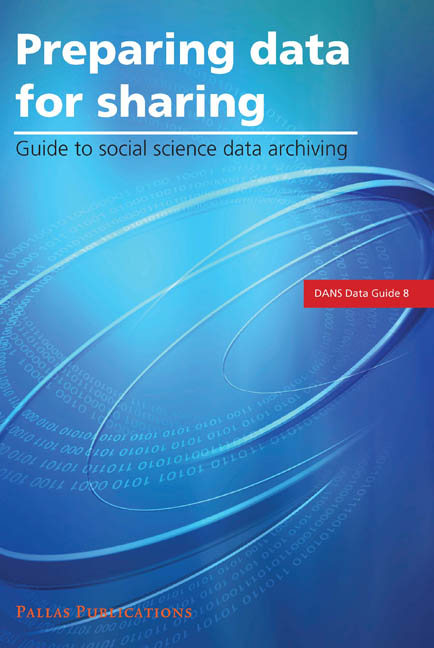Book contents
6 - Final Project Phase – Preparing Data for Sharing
Summary
This chapter addresses the critical final steps researchers should undertake in preparing to archive and/or disseminate their data.
Respondent confidentiality
For most of this publication, the focus has been on data preparation methods that can serve the research needs of both principal investigators and analysts of secondary data. In this chapter, however, we highlight one area of divergence necessitated by the responsibility to protect respondent confidentiality. Researchers must pay special attention to this issue. Once data are released to the public, it is impossible to monitor use to ensure that other researchers respect respondent confidentiality. Thus, it is common practice in preparing public-use datasets to alter the files so that information that could imperil the confidentiality of research subjects is removed or masked before the dataset is made public. At the same time, care must be used to make certain that the alterations do not unnecessarily reduce the researcher's ability to reproduce or extend the original study findings.
Below, we suggest steps that principal investigators can take to protect respondent confidentiality before they submit their data for archiving. But first, a quick review of why this is important.
Disclosure risk limitation, the principles
Social scientists must demonstrate a deep and genuine commitment to preserve the privacy of the subjects whom they study in the course of their research. Most often applied to individuals who consent to be interviewed in surveys, this commitment extends also to groups, organizations, and entities whose information is recorded in administrative and other kinds of records.
DANS places a high priority on preserving the confidentiality of respondent data and review all data collections they receive to ensure that confidentiality is protected in the public-use datasets released. DANS adheres to the generally accepted academic codes of conduct for the exchange of knowledge and information in the Netherlands, as laid down in The Netherlands code of conduct for scientific practice (Association of Universities in the Netherlands – VSNU, 2005) and the Gedragscode voor gebruik van persoonsgegevens in wetenschappelijk onderzoek (Association of Universities in the Netherlands – VSNU, 2005 – only available in Dutch).
Information
- Type
- Chapter
- Information
- Preparing Data for SharingGuide to Social Science Data Archiving, pp. 37 - 40Publisher: Amsterdam University PressPrint publication year: 2012
